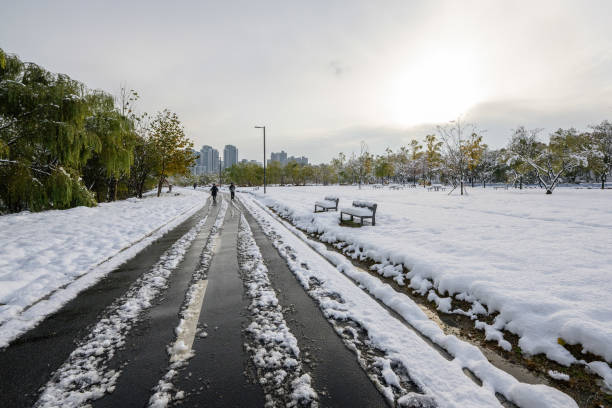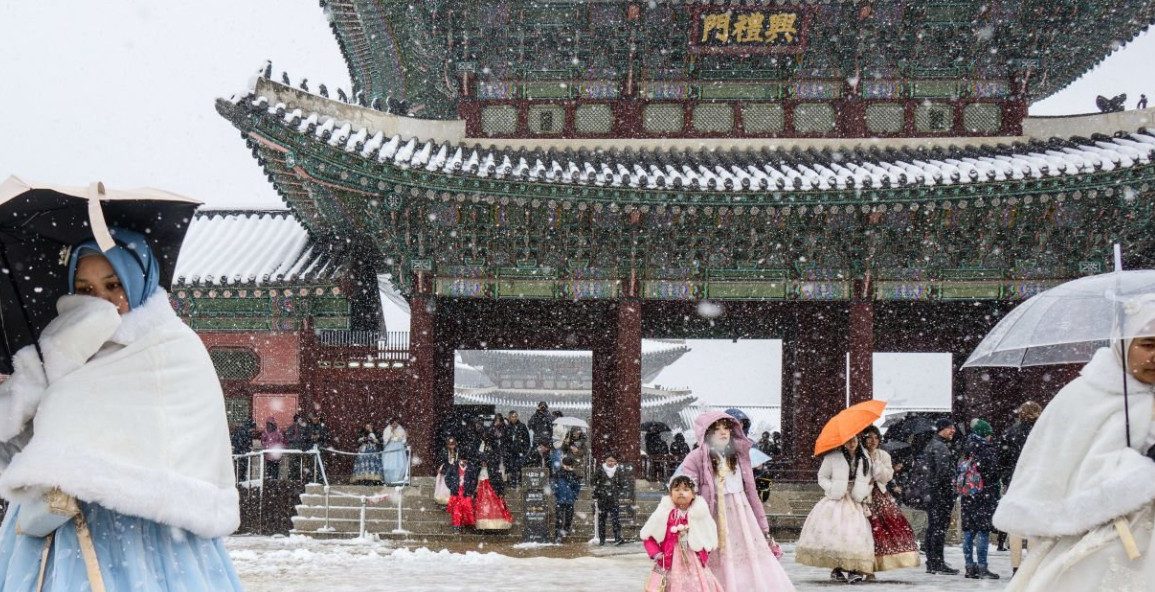South Korea’s capital, Seoul, has been covered by a record-breaking snowfall, marking the heaviest November snow since records began over a century ago.
According to the Korea Meteorological Administration (KMA), 16.5cm (6.5 inches) of snow fell by 7 a.m. on Wednesday, surpassing the previous record of 12.4cm on November 28, 1972.
This rare winter phenomenon comes as the first snowfall of the season, catching both locals and tourists by surprise.
The massive snowstorm has had wide-ranging effects across the country.
At least 220 flights were grounded, disrupting air travel, while nearly 90 ferries were ordered to stay at port due to unsafe conditions.
Several hiking trails were also shut down, and icy road conditions caused severe delays during the morning commute in Seoul.
Emergency teams worked tirelessly to address fallen trees, signs, and other hazards.

One tragic incident occurred when a five-vehicle crash in the eastern town of Hongcheon led to the death of one person and injuries to four others.
Authorities have been working around the clock to ensure public safety, with President Yoon Suk Yeol urging the transport ministries to mobilize all necessary resources to prevent further accidents.
Despite the disruptions, the snow has also brought a unique charm to the streets.
Tourists, including those from Macau and Thailand, could be seen enjoying the scenic snowfall at popular landmarks like Gyeongbokgung Palace while wearing traditional Hanbok dresses.
As snow continued to fall across the country, particularly in central, eastern, and southwestern regions, authorities warned that conditions could persist until Thursday noon, with temperatures expected to remain low and the snow potentially creating more hazards.
People in Seoul were seen taking part in traditional kimchi-making festivals at temples, a cultural experience that continued amid the snowfall, adding a touch of festivity to the unusual weather event.

